Psyllium Husks derived from the seeds of plant called ‘Plantago Ovata. It is known as “Isabgol” in India and in International Market it is known as Psyllium Husks and Ispaghula. It is derived from seeds by using grinders. The upper layer is removed in this process, which is known as Psyllium Husks.
It can be used regularly, as opposed to harsh stimulant laxatives which should only be used occasionally. It is helpful in chronic constipation,irritable bowel syndrome, diverticulosis, hiatus hernia and diabetes. Soluble fiber may even lower cholesterol 10% to 15% if enough is taken. Psyllium husk is white fibrous material derived from psyllium seeds. It is an effective product with varieties of uses in pharmaceuticals, cosmetics and food products industries. Psyllium Husk consists of the epidermis and the collapsed adjacent layers removed from the dried ripe seeds of Plantago Ovata.
Psyllium husk contains huge amount of soluble and insoluble natural fibers responsible for it's laxative action.
| Specifications | ||||
|---|---|---|---|---|
Description |
Psyllium Husk 85% |
Psyllium Husk 95% |
Psyllium Husk 98% |
Psyllium Husk 99% |
Description |
Plantago Ovata Frosk Husk. The Odour is not Marked |
Plantago Ovata Frosk Husk. The Odour is not Marked |
Plantago Ovata Frosk Husk. The Odour is not Marked |
Plantago Ovata Frosk Husk. The Odour is not Marked |
Taste |
Blend Mucilaginous |
Blend Mucilaginous |
Blend Mucilaginous |
Blend Mucilaginous |
Moisture |
12% Maximum |
12% Maximum |
12% Maximum |
12% Maximum |
Swell Volume |
Not less than |
Not less than |
Not less than |
Not less than |
Total Ash |
4% Maximum |
4% Maximum |
4% Maximum |
4% Maximum |
Acid Insoluble Ash |
1% Maximum |
1% Maximum |
1% Maximum |
1% Maximum |
Heavy Extraneous Matter |
1% Maximum |
1% Maximum |
1% Maximum |
0.5% Maximum |
Light Extraneous Matter |
15% Maximum |
5% Maximum |
2% Maximum |
1% Maximum |
Insect Infestation |
Not more than |
Not more than |
Not more than |
Not more than |














